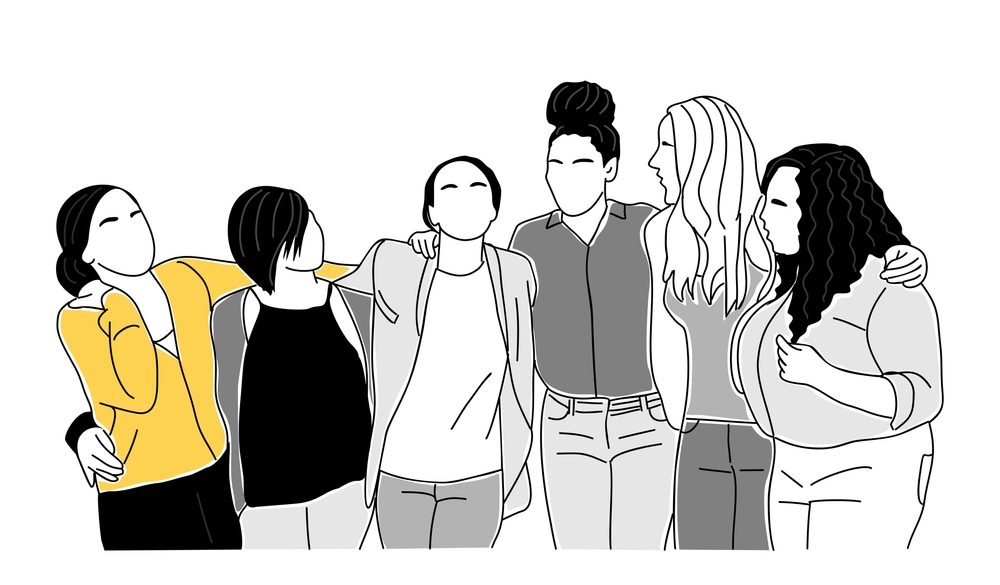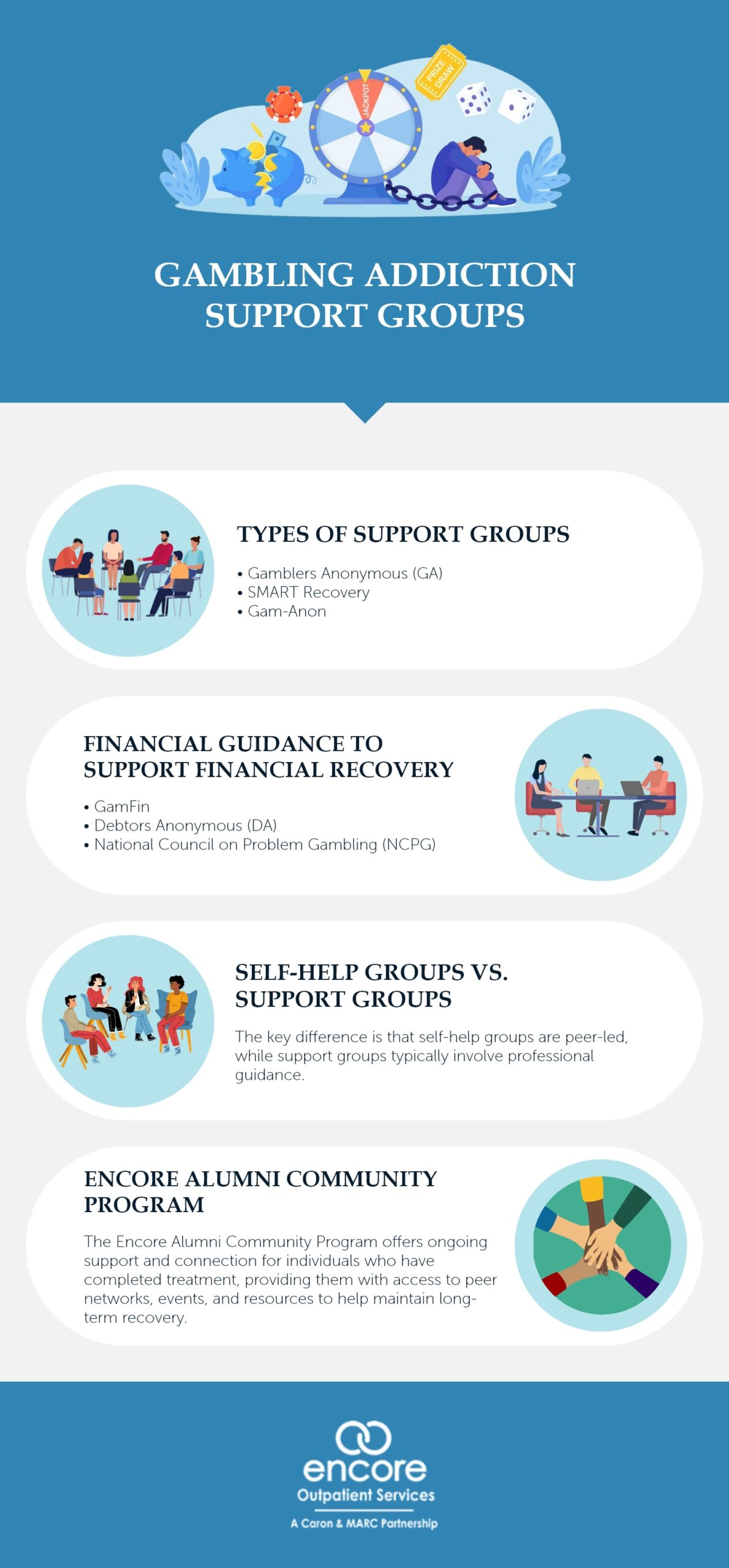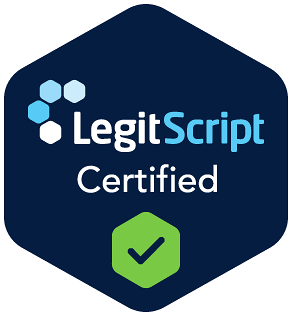Our dedication lies not just in treating symptoms but in addressing the root causes, offering a holistic approach that integrates the best of therapeutic practices with the warmth of community support.
Gambling Addiction Support Groups

Gambling disorders can have profound effects on individuals and their families, and joining a support group is a key part of their wellness journey. Support groups provide a safe environment where individuals can share their experiences, find encouragement, and connect with others who understand what they are going through. Whether you are struggling with gambling addiction yourself or supporting a loved one, learning about the different support groups available can help you find the right resources to start healing.
Types of Support Groups
There are several types of support groups available for individuals struggling with gambling addiction and their loved ones.
- Gamblers Anonymous (GA): GA is a well-known 12-step program modeled after Alcoholics Anonymous. It provides a structured approach to recovery, focusing on personal accountability and mutual support. Participants work through the 12 steps and attend regular meetings to share experiences and receive encouragement. Gamblers Anonymous is open to anyone with a desire to stop gambling; participation is free and voluntary. GA’s long-established framework has helped many people regain control over their lives and break free from the cycle of compulsive gambling.
- SMART Recovery: This support group uses a science-based approach to help individuals overcome addictive behaviors, including gambling. SMART Recovery (which stands for Self-Management and Recovery Training) focuses on self-empowerment, teaching practical skills to manage gambling urges, improve emotional health, and maintain long-term wellness. Unlike some traditional support groups, SMART Recovery encourages members to take an active role in shaping their recovery plan, giving them practical tools to gain control over their addictive behaviors. Meetings are available both in-person and online, making them accessible to individuals worldwide.
- Gam-Anon: This group is designed specifically for family members, friends, and loved ones of individuals struggling with gambling addiction. Gam-Anon provides a supportive environment where loved ones can share their experiences, receive emotional support, and learn how to cope with the effects of gambling addiction on their relationships. Much like Gamblers Anonymous, Gam-Anon also follows a 12-step program, with meetings that focus on mutual support, personal growth, and healing. Members can remain anonymous, and participation is voluntary and free of charge. Through these meetings, loved ones learn to set boundaries, manage their emotional health, and find ways to support the recovery of the person struggling with gambling addiction while prioritizing their well-being.
Each type of support group offers unique benefits, so it’s important to find one that resonates with you and aligns with your wellness goals.

What to Expect in a Gamblers Anonymous Meeting
In a GA meeting, participants can expect a structured session that typically lasts between 60 to 90 minutes. The meeting provides a welcoming and supportive environment for individuals seeking help for their gambling addiction.
Meeting Structure:
- Welcome and Introductions: The meeting begins with a welcome from the group facilitator. Participants introduce themselves using only their first names, usually starting with, “Hi, my name is [Name], and I am a compulsive gambler.”
- Reading from GA Literature: Members read from GA materials such as the Twelve Steps and Twelve Traditions or other recovery-related literature to guide the discussion.
- Newcomer Acknowledgment: New members are often asked to introduce themselves and may go through a set of questions to assess their gambling habits. This is done to help them reflect on their behavior and determine whether GA is the right fit.
- Sharing Session: Members voluntarily share their experiences, challenges, and progress. The sharing is typically 5-10 minutes per person, allowing everyone a chance to speak.
- Discussion and Feedback: After members share, the group may engage in a discussion to offer support, feedback, and advice. The focus remains on encouraging one another through personal stories.
- Closing: The meeting ends with announcements, often followed by a group recitation of the Serenity Prayer or another form of reflection.
Types of Meetings:
- Closed Meetings: These meetings are only for individuals who believe they have a gambling problem.
- Open Meetings: Open to anyone, including family members and friends, allowing loved ones to understand the recovery process.
Environment:
- Supportive Atmosphere: GA meetings emphasize a non-judgmental, confidential space where members are encouraged to share openly and honestly. The environment is designed to foster safety and respect.
- Guidelines for Sharing: Members are asked to share their personal experiences without interrupting others. Listening and respect are key to creating a positive, supportive group dynamic.
Benefits of Attending: Attending GA meetings helps you connect with others who share similar struggles. It offers valuable insights into managing addiction, as well as encouragement throughout your recovery journey. Many find that sharing their experiences in a safe environment reduces feelings of isolation and strengthens their commitment to overcoming their addiction.
What to Expect in a SMART Recovery Meeting
SMART Recovery meetings typically last between 60 to 90 minutes and follow a structured format designed to support participants in overcoming addictive behaviors. Here’s what to expect:
Meeting Structure:
- Check-in: Participants begin the meeting by sharing their progress and discussing any challenges or successes they have encountered over the past week in relation to their recovery.
- Discussion: The main portion of the meeting is a group discussion led by a facilitator. During this time, Cognitive Behavioral Therapy (CBT) tools and techniques are used to explore addictive behaviors and strategies for managing them.
- Checkout: At the end of the meeting, participants outline their recovery plans for the upcoming week, reinforcing accountability and commitment to their goals.
Ground Rules:
- Confidentiality: To create a safe environment, participants agree to keep what is shared in the meeting confidential.
- Respectful Listening: Only one person speaks at a time to ensure everyone has a chance to contribute without interruptions.
- No Substance Discussion: Participants avoid glorifying past addictive behaviors or sharing details that could be triggering to others.
- Non-Judgmental Atmosphere: Meetings foster an environment of support and understanding without judgment.
SMART Recovery meetings introduce participants to practical tools that support their recovery, including:
- The ABCs of REBT (Rational Emotive Behavior Therapy): This helps participants manage urges by challenging unhelpful thoughts and beliefs.
- Cost-Benefit Analysis: A tool used to evaluate the pros and cons of continuing addictive behaviors.
- Change Plan Worksheets: These worksheets help outline clear steps toward achieving recovery goals.
Participation:
- Voluntary Sharing: Participation is optional. Individuals can choose to share their experiences or simply listen.
- Inclusivity: Meetings are open to anyone dealing with any form of addiction, such as gambling, alcohol, or drugs.
Benefits of Attendance: Attending SMART Recovery meetings helps you gain insights into your behavior, develop coping strategies, and connect with others facing similar challenges. The focus on self-empowerment and practical tools equips you with the skills needed to manage cravings and triggers. Many people find that the supportive group dynamic makes them feel less isolated during their recovery process.
What to Expect in a Gam-Anon Meeting
Gam-Anon meetings typically last about 60 to 90 minutes and provide a supportive space for those affected by a loved one’s gambling problem. Here’s what to expect:
Typical Agenda:
- Welcome and Introductions: Meetings start with a welcome message. Participants introduce themselves by first names, often saying, “Hi, I’m [Name], and I’m here because of my [husband/ partner/ family member/ friends] gambling.”
- Reading from Literature: A reading from Gam-Anon literature follows, focusing on the program’s principles, Twelve Steps, or specific coping strategies.
- Sharing Session: Members share their personal experiences and challenges related to living with a compulsive gambler. Sharing is voluntary, and participants control how much they disclose.
- Discussion and Support: After sharing, the group may discuss the stories, offer advice, or simply provide support through active listening.
- Closing: Meetings end with announcements about upcoming events, followed by a moment of reflection or group prayer, often the Serenity Prayer.
Types of Meetings:
- Closed Meetings: Open only to individuals affected by someone else’s gambling behavior.
- Open Meetings: Open to anyone interested in learning more about the effects of gambling on loved ones.
Environment:
- Gam-Anon programs create a safe, nonjudgmental environment where participants feel comfortable expressing their feelings.
- Confidentiality is a core principle, ensuring that everything shared in the meeting remains private, promoting trust and openness among members.
Benefits of Attendance: By attending Gam-Anon, you gain valuable insights into your situation, learn coping mechanisms, and connect with others who understand your struggles. This support can alleviate feelings of isolation, providing emotional comfort and practical guidance for dealing with the challenges of a loved one’s gambling addiction.
Financial Guidance to Support Financial Recovery
Recovering from the financial consequences of gambling addiction can be challenging, but there are resources available to help individuals and families regain financial stability. These services focus on managing debt, creating budgets, and developing practical strategies for financial recovery. Here are some key financial support options:
- GamFin: GamFin offers specialized financial counseling for those experiencing gambling-related financial issues. Their services include one-on-one sessions and group discussions on budgeting, managing expenses, and planning debt repayment. Counselors provide personalized financial guidance to help individuals rebuild savings and regain control of their finances. Many of GamFin’s services are free in participating states through state-funded programs.
- National Council on Problem Gambling (NCPG): The NCPG provides referrals to local financial counseling services via their 24-hour helpline (1-800-GAMBLER). These services offer support for managing the financial impact of gambling addiction and provide resources for both individuals and their families. In addition to financial guidance, the National Council on Problem Gambling helps connect individuals with treatment programs to address the root causes of gambling problems.
- Debtors Anonymous (DA): Debtors Anonymous is a 12-step program for individuals struggling with debt, including debt caused by gambling. DA meetings offer emotional support and practical strategies for tackling debt, including budgeting techniques, managing expenses, and developing a plan to pay off debt. Members share experiences and advice, providing a supportive environment to help participants regain financial control.
These resources offer the tools and guidance needed to begin the journey toward financial recovery, empowering individuals to regain control of their finances and move forward with confidence.
Empowering Yourself and Others: Educational Resources
Access to educational resources is key to empowering both yourself and others when dealing with gambling addiction. These resources provide knowledge, tools, and support to help you make informed decisions about your wellness journey. Here are a few ways to leverage educational tools effectively:
- Online Tools: Websites like HelpGuide offer a wealth of information, including self-help guides, strategies for managing triggers, and coping mechanisms for overcoming gambling addiction. These platforms also provide resources for friends and family members who want to learn how to support their loved ones.
- Community Workshops: Nonprofit organizations like Gamblers Anonymous provide free or low-cost workshops and training programs that focus on preventing gambling harm. These workshops are designed for individuals, educators, and families who want to understand the risks and learn how to address gambling addiction effectively.
- Books and Literature: Many addiction support groups, such as Gamblers Anonymous, provide literature like the Twelve Steps and other recovery guides that outline the principles and steps for managing gambling addiction. These materials offer insight into the recovery process and provide a roadmap for personal growth.
- Helplines and Counseling: Reaching out to national helplines like the National Council on Problem Gambling can connect individuals with local resources, including counseling and financial advice, to help you navigate the financial challenges of gambling addiction.
This wealth of resources equips individuals with the knowledge and support they need to understand addiction, prevent relapse, and encourage positive change.
Self-Help Groups vs. Support Groups
Understanding the difference between self-help groups and support groups can help you choose the right option for your needs. Both provide valuable environments for individuals to share experiences, but their structure and focus vary.
- Self-Help Groups: Self-help groups are typically peer-led and consist of individuals who face similar challenges, such as addiction or mental health concerns. These groups are non-hierarchical, meaning there are no professional facilitators. Members take turns sharing their experiences and supporting one another. The goal of self-help groups is mutual support and personal growth. Members share coping strategies and offer encouragement in an informal setting.
- Support Groups: Support groups also provide emotional support but are more structured and often include professional facilitators. These groups can be led by trained mental health professionals who guide the discussion, offer therapeutic techniques, and may include structured activities or educational sessions. Support groups aim to foster both emotional support and skill-building, helping members develop specific coping strategies for challenges like addiction and/or mental health challenges.
Both types of groups offer benefits, but the key difference is that self-help groups are peer-led, while support groups typically involve professional guidance. Choosing the right type of group depends on your personal preferences and needs.
Encore Alumni Community Program
Encore’s Alumni Program offers ongoing support for individuals who have completed our treatment programs, helping them maintain their recovery and stay connected to a community of peers. The Alumni Program fosters long-term relationships through regular meetings, social events, and continued access to resources that promote lasting wellness. This community serves as a source of encouragement, accountability, and shared experiences, making it easier for members to navigate the challenges of post-treatment life.
Through the program, alumni have opportunities to engage with others who understand their journey, participate in group activities, and receive mentorship from those further along in their recovery process. The program is designed to reinforce the coping strategies learned during treatment while providing a safe and supportive environment to share ongoing successes and struggles.
If you or a loved one is ready to take the next step in your recovery journey, Encore Outpatient Services in Arlington, VA, provides comprehensive professional treatment programs to support lifelong wellness. Reach out to learn more about how we can help you maintain progress and build a fulfilling, addiction-free life.
Let Us Support You On Your Recovery Journey!
Copyright 2025 Encore Outpatient Services | All Rights Reserved



